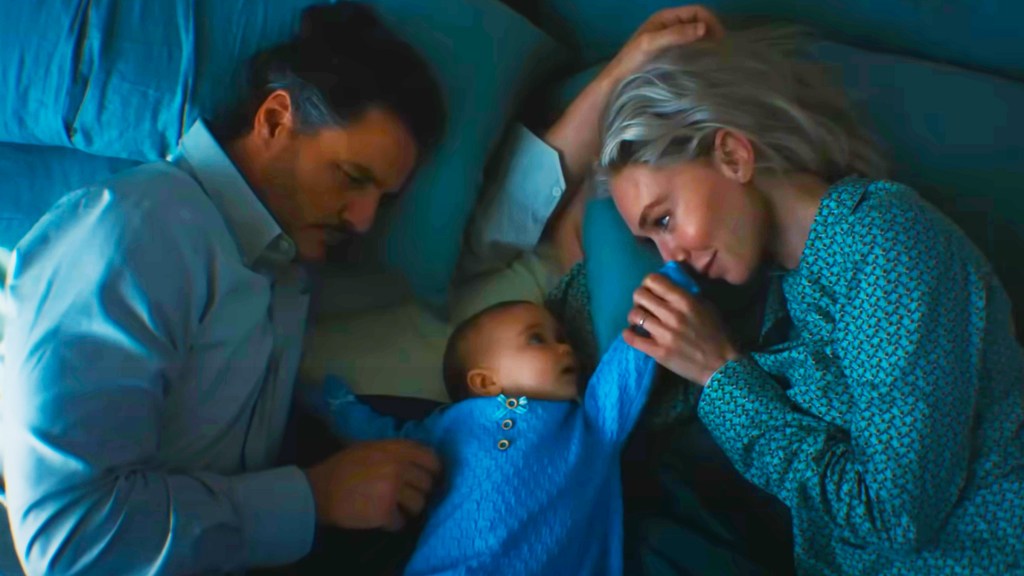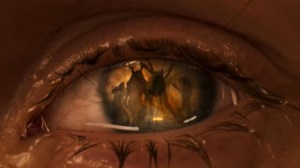As the Marvel Cinematic Universe hurtles towards its next team saga with Avengers: Doomsday and Avengers: Secret Wars, fans are first keenly anticipating the arrival of the Fantastic Four. Marvel’s First Family’s introduction in Fantastic Four: First Steps is set to feature the birth of Franklin Richards, Reed and Sue’s equally fantastic son. However, Franklin’s mere existence is a detail that immediately brings to mind a critical challenge for the franchise. Given the sheer, almost limitless power Franklin possesses in the comic book source material, a significant question arises: how will Marvel Studios reconcile his near omnipotent abilities with the established power levels and needs of the MCU?
Videos by ComicBook.com
The High Stakes of a Threat Like Doom Demand Careful MCU Power Leveling

Franklin Richards is far from an ordinary child. In the comics, he is recognized as an Omega-level mutant, possessing reality-warping capabilities that allow him to manipulate matter and energy on a cosmic scale. He can create pocket universes, project psionic energy, and even resurrect lifeforms. His powers are so overwhelming that he has, at times, been considered one of the most powerful characters in the entire Marvel Multiverse, capable of shaping existence itself.
The prospect of such an unbeatable character, potentially still just a toddler by the time Avengers: Doomsday (December 18, 2026) and Avengers: Secret Wars (December 17, 2027) unfold, presents a unique problem, narratively speaking. If Franklin retains even a fraction of his comic book might, he could single-handedly resolve virtually any threat that would otherwise require the combined might of every Avenger and superhero in the universe. This raises the possibility that Marvel may have to significantly curb Franklin’s powers.
The inclusion of a character with god-like abilities, even a young one, directly impacts the stakes of any major crossover event. If Franklin Richards can simply wish away threats like those expected in Doomsday or Secret Wars, the tension and danger necessary to craft a compelling story with high stakes would be almost impossible. The weight of heroic sacrifice, the struggle against overwhelming odds, and the collaborative efforts of multiple heroes become less meaningful if a toddler can rewrite reality at will.
The MCU has meticulously built a universe where power, while significant, still operates within certain understandable boundaries. Introducing a character who defies these boundaries without proper contextualization or limitation could undermine the carefully constructed dynamics of its expansive universe. The only way to preserve the dramatic tension of the upcoming Avengers films, some form of power modification for Franklin seems almost inevitable.
This is not to say that Franklin’s importance would be lessened entirely. His very existence as a child with fantastical, latent power could be a driving force for conflict or a target for villains seeking to exploit his abilities. His potential could be a source of hope or fear, depending on how it’s managed or how heroes and villains view him. The challenge lies in finding a balance where his inherent greatness is acknowledged without him becoming a de facto “reset button” for every crisis in a way that a character like Wanda Maximoff or her son, Billy Kaplan, could have been.
The possibility exists that Franklin’s powers manifest unpredictably or require dedicated energy or focus that a child is simply not capable of maintaining. It’s also possible that his powers are initially dormant or only accessible under specific, rare circumstances, allowing for a gradual unveiling of his true potential over time, rather than an immediate, overwhelming act.
Power Limitations Allow for Future Growth & Deeper Character Exploration

For Franklin Richards to be a fully fleshed-out character, rather than just a plot device, he must face challenges and experience growth. Allowing him to have his full, unlimited comic book powers from the outset would leave little room for development or vulnerability, both of which are critical components of any relatable hero’s journey. By establishing limitations, whether physical, mental, or external, Marvel can craft a more engaging arc for the character as he matures and potentially learns to control his extraordinary gifts with his parents’ guidance. This would allow for future stories where Franklin’s powers can grow, mirroring his personal development, and ensures that he doesn’t overshadow the established heroes who have carried the franchise for years.
The potential for de-powering Franklin Richards isn’t necessarily a poor choice or disrespect to the source material. It presents an opportunity to explore the intricacies of his powers, the burdens they place upon him and his family, and the moral dilemmas that come with such capabilities. The Fantastic Four’s role in guiding and protecting him could become central to their story, not just as heroes, but as a family. Whatever path Marvel chooses, the inclusion of Franklin Richards in the MCU poses a fascinating question that will undoubtedly shape the future of its cinematic universe and the scale of its most epic battles.
The Fantastic Four: First Steps will be in theaters and IMAX on July 25th.









